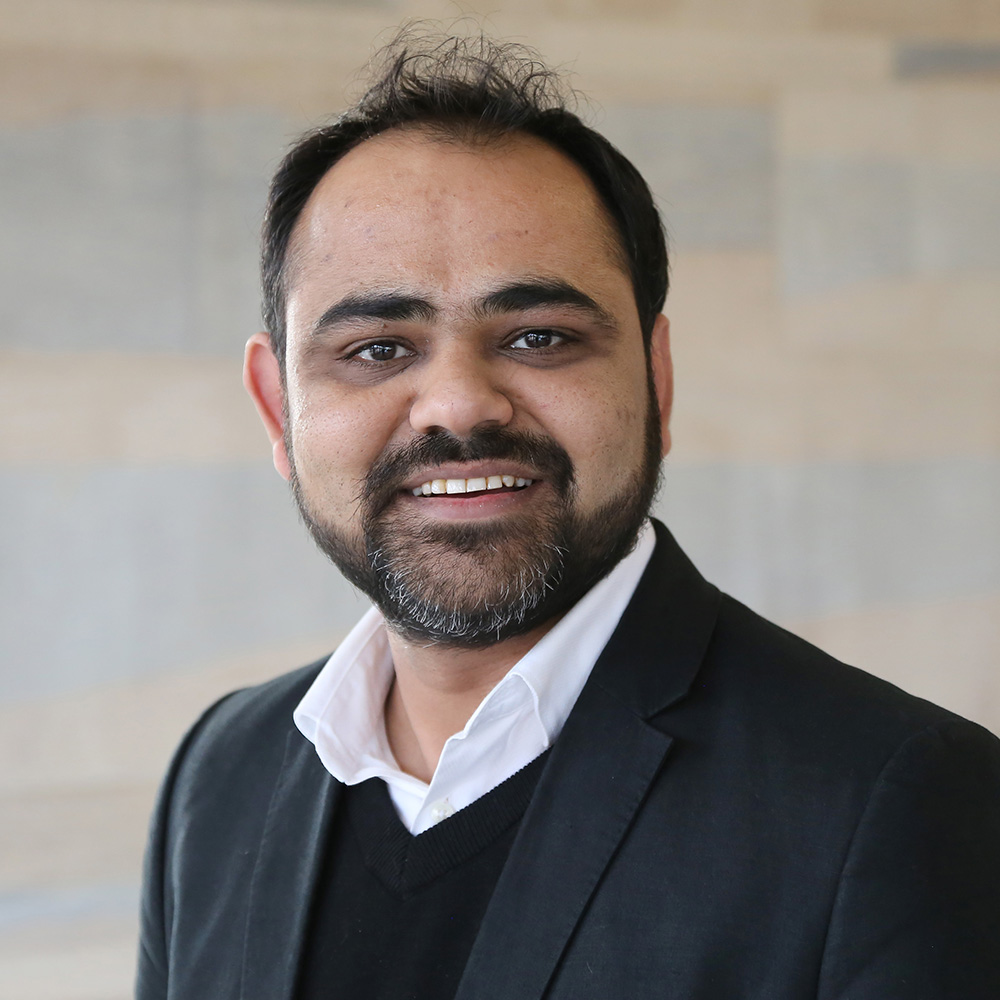Completing your PhD with the Institute for Analytics and Data Science

The Institute for Analytics and Data Science at the University of Essex is globally renowned for its world-class interdisciplinary expertise in the analytics and data science to develop lasting solutions that transform the world for the benefit of individuals and communities.
Our experts include computer and electronic engineering scientists, statisticians and mathematicians, bioinformatics and biomedical scientists, social and political scientists, economists and finance experts, digital humanities experts, human rights experts, ethics and legal experts.
We are proud to have supported the generations of postgraduate researchers who go on to transcend disciplinary boundaries and create a real change in industries such as insurance, financial analysis and management, charities and NGOs, and the public sector, while also starting their own businesses and consultancy services.
Our research supervisors
IADS has a multidisciplinary and interdisciplinary research community of over 200 experts from three faculties and 13 disciplines. More information about our academics and researchers is available on the ‘Our people’ page.
Core institute members and alumni include:

Professor and Director of IADS
School of Computer Science and Electronic Engineering (CSEE)Supervision areas: Security and Privacy Requirements Engineering.

Senior Lecturer and Deputy Director of IADS
School of Computer Science and Electronic Engineering (CSEE)Supervision areas: Reinforcement Learning, Machine Learning, Neural Networks, Role Playing Games.

Deputy Director IADS and Reader
EBS - Strategy, Operations and Entrepreneurship (SOE)Supervision areas: Entrepreneurship, Business Administration, Business Analytics.

Lecturer
School of Life SciencesSupervision areas: Biological Machine Learning, Computational Palaeobiology, Quantifying Evolutionary Convergence, Ediacaran Palaeobiology and Palaeoecology

Lecturer
School of Computer Science and Electronic Engineering (CSEE)Supervision areas: Brain-Computer Interfaces, Machine Learning Applied to Biomedical Signals, Event-Related Potentials (ERPs), Memory, Neural Engineering.

Research Fellow
School of Computer Science and Electronic Engineering (CSEE)Supervision areas: Energy-Efficient AI, Trustworthy AI, Machine Learning, Tinyml, Federated Learning, Kernel Methods, Signal Processing, Fpgas, Numerical Linear Algebra, Resource-Efficient Convolutional Networks, Real-Time Object Detection.

Research Fellow (IADS)
Department of Language and LinguisticsSupervision areas: Forensic Linguistics, Sociolinguistics, Language Technology, Natural Language Processing.

Senior Lecturer
School of Computer Science and Electronic Engineering (CSEE)Supervision areas: Big Data and Analytics, Brain-Computer Interface, Deep Learning, Transfer Learning, Non-Stationary Learning and Domain Adaptation, Artificial Intelligence (AI) and eXplainable AI (XAI), EEG and MEG Signal Processing, EEG and MEG Signal Processing.
Past postgraduate research projects
Over the years students have researched many different themes and topics alongside the Institute:
- Analysis of a Few Domain Adaptation Methods in Causality
- Developing Event Identification Methods for Structured and Unstructured Data Streams
- Developing Learning Methods for Non-Stationary and Imbalanced Data Streams
- Did 9/11 Change Everything? Security and Human Rights Trade-offs in International Cooperation
- Enhancing Recommendations in Specialist Search Through Semantic Based Techniques and Multiple Resources
- Exploring Embedding Vectors for Emotion Detection
- Food Security and Preferential Trade Agreements
- Improving Classification Through Co-Training Approaches
- Minimalistic Adaptive Dynamic-Programming Agents for Memory-Driven Exploration
- Natural Language Processing Methods for Short Informal Text
- Social Media for Social Good: Understanding, Creating and Harnessing the Strength of Parasocial Relationships
- Task Recovery in Self-Organised Multi-Agent Systems for Distributed Domains
- Text Generation for Small Data Regimes
- Understanding Hyperparameters in Machine Learning for Causal Estimation From Observational Data
Current PGR students working with the institute

Postgraduate Research Student
School of Computer Science and Electronic Engineering (CSEE)
Postgraduate Research Student
School of Computer Science and Electronic Engineering (CSEE)
Postgraduate Research Student
School of Computer Science and Electronic Engineering (CSEE)
Postgraduate Research Student
School of Computer Science and Electronic Engineering (CSEE)Study with us
Our expertise attracts major funding from UK research councils to deliver ground-breaking doctoral training programmes in a range of areas including:
- exploring the most challenging social science issues of the 21st century
- investigating the interplay between a person's biology, experiences and behaviour
- artificial intelligence, machine learning, bioinformatics and genomic analysis of big data
The Institute is superbly place to support doctoral research in any area of interest that engages with its remit. This includes students wishing to research the area of data science and analytics and study for a postgraduate research degree in other departments. Including:


